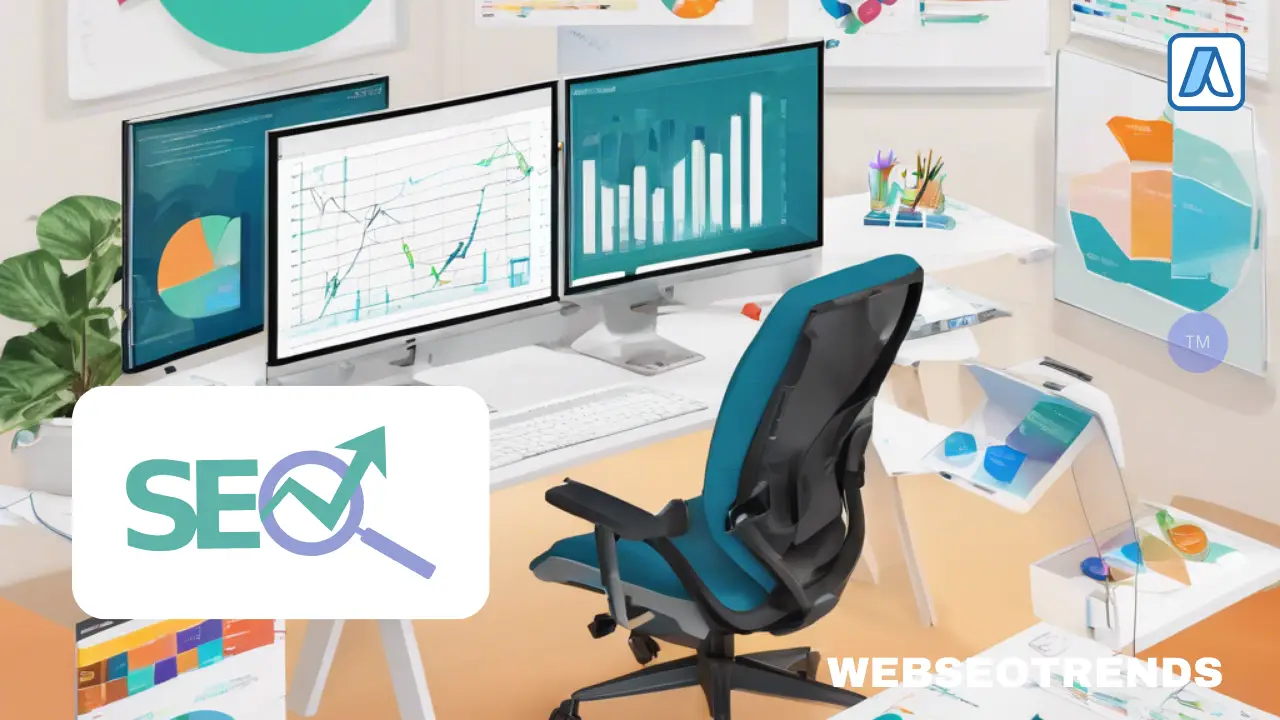SEO generates the highest-quality leads for over 60% of marketers, yet many fail to capitalize on the latest SEO trends that could dramatically improve their results. While the first Google search result captures 31.7% of all clicks, reaching that coveted position becomes increasingly complex as search engines evolve.
As you prepare for 2025, understanding current SEO trends and new SEO Framework has become crucial for your success. Google’s MUM technology, now a thousand times more powerful than BERT, transforms how search engines interpret user intent. Additionally, with AI-assisted content scoring 7.5/10 compared to purely AI-generated content at 3.6/10, the importance of combining human expertise with technological advancement cannot be overlooked. Your SEO strategy must adapt to these changes, especially since 57% of mobile users and 53% of desktop users now find their answers directly in search results without clicking through to websites.
Google Reveals New Ranking Signals for 2025
Google’s latest ranking signals mark a fundamental shift in search engine optimization. Consistent publication of satisfying content remains the primary ranking factor, furthermore, searcher engagement has increased to 12% importance in Q1 2025.
How AI Transforms Search Intent Analysis
Large Language Models (LLMs) now synthesize information from multiple sources, consequently changing how users interact with search results. Social search platforms like Reddit, TikTok, and LinkedIn increasingly appear in traditional SERPs. Notably, Google’s algorithms now consider search type specifics – including Yes/No, Comparison, and Short Fact queries – when determining content satisfaction.
Why Experience Metrics Drive Rankings Now
Core Web Vitals have become crucial ranking signals. Your site’s performance metrics directly impact visibility:
- Largest Contentful Paint (LCP)
- Interaction to Next Paint (INP)
- Cumulative Layout Shift (CLS)
Google primarily evaluates dwell time – how long users spend on your page after clicking through from search results. Sites with difficult navigation or poor user experience face indirect ranking penalties through reduced time on site and increased bounce rates.

When Technical Excellence Meets User Satisfaction
Technical optimization now extends beyond basic requirements. Mobile-first indexing has evolved – Google expects mobile visitors to be your primary design focus. Therefore, sites must deliver exceptional mobile experiences while maintaining technical excellence.
Google actively penalizes websites that don’t contribute unique value, particularly thin affiliate sites. The search engine prefers domains with appropriate contact information matching whois data. Sites publishing health-related content may receive ranking advantages through demonstrated E-A-T (Expertise, Authority, Trust) signals.
For optimal rankings in 2025, your technical foundation must support both crawlability and user satisfaction. Each additional second of page load time directly reduces ranking potential. Moreover, Google rewards sites that consistently produce helpful information with faster indexing and higher positions.
Google SEO shift: Indian news publishers seek new strategies
Indian digital news publishers face unprecedented challenges following Google’s March 2024 Core Updates and Spam Policies. The update, spanning 52 days until April 19th, stands as the longest core update in Google’s history.
Search visibility for major global news publishers has declined significantly. According to search visibility analytics, the lost traffic to news publishers amounts to INR 632.85 million globally. Indian news publishers have experienced a substantial 25-30% reduction in traffic over the past six months.
The new policies specifically target paid content, product reviews, and coupon pages in SEO rankings. As a result, publishers across India have implemented several strategic changes:
- Creating separate brand websites for sponsored content
- Adopting ‘no follow, no indexing’ approaches
- Developing in-house transaction technology
- Redesigning user journeys to maintain content control
Presently, many news publishers have registered new URLs exclusively for hosting sponsored content. This shift comes as publishers attempt to protect their advertorial business, which typically generates up to one-third of their revenue.
Hindustan Times exemplifies this adaptation through innovation. “We’ve partnered with brands to offer deals and branded content directly to our registered users on our website,” states Puneet Jain, Chief Executive Officer – HT Digital.
The impact intensifies as publishers simultaneously battle traffic losses from AI-generated search engine overviews. In fact, this dual challenge threatens to unravel the advertising-based revenue model that numerous publishers depend upon.
The transformation marks a significant departure from traditional news SEO practices. Previously, 80% of newspaper revenue came from advertisements. However, the current digital landscape demands a more nuanced approach to content strategy and monetization.
Data Shows Content Quality Outperforms Keywords
Recent analysis reveals a striking 97% positive correlation between content performance and search rankings. Initially, this finding emerged from examining 40,000 keywords across top Google positions, demonstrating that content quality essentially determines search visibility.
Research Proves E-E-A-T Signals Boost Rankings
Experience, Expertise, Authoritativeness, and Trustworthiness (E-E-A-T) signals altogether shape Google’s quality assessment framework. Rather than focusing solely on keywords, Google’s algorithms evaluate content through multiple quality classifiers:
- First-hand experience demonstrations
- Professional expertise verification
- Content comprehensiveness scores
- User engagement metrics
- Domain authority signals
Content performance metrics undoubtedly influence rankings, with high-quality pages showing a 94% correlation to improved search positions. Primarily, Google’s quality raters examine unique content ratios, topic coverage depth, and regular content updates.
Case Studies Demonstrate Value of Original Research
Major platforms have validated the superiority of quality-focused approaches. Wix integrated advanced Google APIs, resulting in improved site performance through enhanced sitemap submission and URL inspection capabilities. Similarly, Vimeo’s implementation of structured data at scale enabled their customers to access features like Key Moments without additional optimization.
Rakuten’s case study further reinforces this trend – their recipe pages experienced increased average session duration after implementing comprehensive structured data. The Independent Pharmacy leveraged FAQs across landing pages, securing 8.7K keyword rankings in the People Also Ask section.
MedPark Hospital’s content quality initiative led to remarkable results – their Thailand traffic more than tripled year-over-year, while U.S. rankings expanded from non-existent to 206,000 keywords. These outcomes underscore how original, well-researched content consistently outperforms keyword-focused approaches.
Google’s quality rater guidelines now emphasize beneficial purpose, adequate creator information, and high levels of effort in content creation. Sites demonstrating these qualities, coupled with positive online reputation and strong E-E-A-T signals, consistently achieve better rankings than those relying on keyword optimization alone.
Smart Tools Revolutionize SEO Workflows
Technological advancements fundamentally reshape SEO workflows through sophisticated tools and platforms. SEO analytics tools now enable businesses to track, troubleshoot, and enhance their search performance with unprecedented precision.
AI Assistants Transform Content Creation
AI writing assistants distinctly alter content creation processes. These tools generate SEO-optimized content while maintaining quality standards that align with Google’s guidelines. Primarily, AI writers help streamline keyword integration and content structure, though machine-written texts still require human review for optimal results.
Analytics Platforms Unlock Hidden Opportunities
Modern analytics platforms offer comprehensive insights into SEO performance. Google Analytics 4 tracks user interactions and conversions, subsequently providing detailed event tracking data. Search Console delivers crucial information about site impressions and organic traffic patterns, enabling data-driven optimization decisions.
Technical SEO tools evidently enhance website analysis capabilities:
- Screaming Frog identifies broken links, redirect chains, and duplicate content
- Ahrefs provides detailed technical SEO performance metrics
- SEMrush offers over 40 tools for keyword research and technical analysis
Automation Tools Streamline Technical Optimization
SEO automation tools essentially reduce manual workload while improving accuracy. These platforms automatically handle various tasks:
Site monitoring systems track performance metrics and alert teams to technical issues. Rank tracking tools update keyword positions regularly, eliminating the need for manual checks. Reporting tools like Looker Studio combine data from multiple sources to create automated dashboards.
Advanced automation platforms now handle complex tasks such as schema markup optimization and technical audits. These tools perform scheduled website crawls, generate actionable reports, and highlight critical issues requiring attention.
The integration of AI capabilities ultimately enhances traditional SEO tools. Surfer SEO, for instance, incorporates AI features for content optimization, while SE Ranking provides comprehensive toolsets for technical analysis. These innovations enable SEO professionals to focus on strategy while automation handles routine tasks.
Experts Share Winning SEO Strategies
Leading SEO experts reveal that consistent, disciplined SEO practices drive substantial traffic growth, with internal linking emerging as one of the most powerful yet overlooked tactics.
Industry Leaders Reveal Success Secrets
Successful brands primarily focus on solving problems and providing opportunities for their target audience. Indeed, high-quality content remains the cornerstone of effective SEO, with engagement metrics directly impacting conversions.
Top industry experts emphasize these key success factors:
- Content relevance and user intent alignment
- Technical optimization excellence
- Strategic internal linking structure
- Continuous performance monitoring
- Regular strategy refinement
“Understanding search engine algorithms helps identify opportunities for optimizing content and improving authority,” notes a prominent SEO strategist. Generally, successful keyword strategies involve comprehensive research, competitive analysis, and continuous monitoring of performance metrics.
Top Performers Break Down Their Approach
Stone Temple Consulting’s research, published on Moz, certainly confirms that backlinks maintain a strong correlation with first-page Google rankings. Hence, top performers focus on understanding why people link to specific content in their industry before creating their own.
Thus, successful SEO practitioners emphasize the importance of technical fundamentals. Overall, monitoring SEO performance through tools like Google Analytics and Google Search Console enables tracking of organic traffic, bounce rates, and keyword performance.
Lastly, industry leaders highlight that organic search strategies driven by SEO prove more cost-effective than paid advertising, delivering longer-lasting results. While SEO might initially seem like a slow process, targeting long-tail keywords and specific sub-topics helps smaller businesses achieve early results and build momentum.
Companies Transform Their SEO Programs
Businesses across sectors reshape their SEO approaches as search algorithms advance. India’s startup ecosystem, now the third largest globally, demonstrates this shift with over 112,718 registered startups as of October 2023.
Startups Disrupt Traditional SEO Models
Innovative startups primarily focus on programmatic SEO to scale their content rapidly. KrispCall exemplifies this approach by creating targeted landing pages for every U.S. area code. Meanwhile, Transit expanded from 300 pages to thousands through automated content generation.
Enterprise Brands Pivot to New Framework
Large organizations face unique challenges in coordinating SEO efforts across departments. Enterprise-level websites require sophisticated tools for managing thousands of pages. Technical excellence demands:
- Automated crawl budget optimization
- Strategic duplicate content management
- Global content localization
- Mobile-first indexing compliance
Flyhomes demonstrates this transformation, expanding from 10,000 pages to 425,000 within three months through comprehensive housing guides. Afterward, Brainly generated over 2 million question landing pages, leveraging user-generated content for sustained growth.
Small Businesses Find SEO Success
Small businesses achieve remarkable results through focused strategies. The Independent Pharmacy secured 8,700 keyword rankings in featured snippets by implementing FAQ schema markup. Soon, Handle the Heat doubled its traffic by prioritizing comprehensive content updates.
Whether managing enterprise sites or small business platforms, successful SEO requires constant adaptation. Unless organizations embrace automation tools like Screaming Frog for technical audits and WebSEOTrends for content suggestions, they risk falling behind. Although traditional backlink strategies remain relevant, content quality ultimately determines search success.
MedPark Hospital exemplifies this evolution, expanding from zero U.S. rankings to 206,000 keywords through strategic content development. Regardless of size, businesses that implement structured data and maintain technical excellence consistently outperform competitors in search rankings.
SEO Teams Adopt New Success Metrics
Measuring SEO success fundamentally shifts from traditional metrics to revenue-focused indicators. Modern analytics reveal that poor technical performance increases bounce rates by 3.9%, markedly affecting bottom-line results.
Revenue Impact Becomes Key Performance Indicator
Return on investment emerges as the primary measure of SEO effectiveness. Search Engine Journal research indicates that SEO delivers the highest ROI among all digital marketing channels. Customer lifetime value tracking shows the long-term impact of organic search visitors.
Businesses now calculate SEO ROI through multiple approaches:
- Direct revenue from organic traffic
- Cost savings versus paid channels
- Customer acquisition value
- Long-term customer relationships
Primarily, companies focus on conversion tracking, as 70% of users explore services through content before making decisions. Besides traditional metrics, organizations evaluate SEO success through customer lifetime value, which demonstrates the extended impact of organic search visitors.
Engagement Analytics Drive Decision Making
User engagement straightaway influences search rankings through Google’s NavBoost system. During recent analysis, Sparktoro found that merely 36% of Google searches result in clicks to websites, intensifying the importance of engagement metrics.
Technical performance fundamentally shapes user behavior. Poor Interaction to Next Paint (INP) reduces engagement by 11.7%, while slow page loads directly impact conversion potential. Nonetheless, businesses implementing engagement-focused strategies see improved results, with average session duration between 2 to 3 minutes considered optimal.
Core engagement metrics now guide SEO decisions:
- Bounce rates indicate content relevance
- Session duration reflects user satisfaction
- Pages per session measure content depth
- Click-through rates show search result appeal
PageSpeed Insights data demonstrates that optimizing Core Web Vitals can reduce bounce rates by 3.9%. Furthermore, EyeQuant research reveals that up to one-third of users decide to stay or leave within their first impression, emphasizing the critical nature of immediate engagement.
Analytics platforms enable continuous monitoring of these metrics, allowing teams to make data-driven adjustments. Through comprehensive tracking, businesses can identify high-performing content and replicate successful patterns across their digital presence.
You Don’t Need a Human Team—AI Can Handle All Your SEO!
Artificial intelligence fundamentally alters SEO operations, with 86% of SEO professionals now incorporating AI tools into their workflows. Marketing expert Ryan Stewart demonstrates this shift, running full-scale SEO campaigns single-handedly while competing against larger agencies.
Companies using AI for SEO report substantial efficiency gains. Among businesses with 200+ employees, 83% note improved SEO performance after implementing AI tools. Primarily, these tools automate time-consuming tasks, saving teams an average of 12.5 hours weekly.
AI-powered platforms now handle diverse SEO functions:
- Content optimization and generation
- Technical SEO audits and monitoring
- Keyword research and competitive analysis
- Link building opportunity identification
- Performance tracking and reporting
Notably, SEO automation expedites crucial tasks like backlink analysis and competitor monitoring. These tools automatically gather data, detect technical errors, and track traffic changes. Furthermore, platforms like seoClarity integrate comprehensive optimization features with GPT-powered AI assistants for content creation.
AI tools consistently demonstrate their value through practical applications. Surfer’s AI-driven Content Editor organizes topic ideas into intent-based clusters. Similarly, SE Ranking enables location-specific rank tracking and direct management of customer reviews. Ultimately, tools like Screaming Frog efficiently identify technical issues, from broken links to duplicate content.
The rapid advancement of AI capabilities transforms traditional SEO roles. One former employer replaced a full-time copywriter after determining AI-generated content matched human output quality. Nevertheless, this shift primarily affects routine tasks rather than strategic planning.
Current AI tools excel at specific functions. ChatGPT generates optimized title tags and meta descriptions within seconds. MarketMuse analyzes site authority and builds detailed content briefs. Frase assists with research and content optimization through its AI Article Wizard.
Despite automation advances, human oversight remains crucial. Research shows AI-assisted content scores 7.5/10 compared to purely AI-generated content at 3.6/10. Content written by skilled professionals who understand their audience continues to demonstrate superior performance.
Fundamentally, successful SEO in 2025 requires balancing AI capabilities with human expertise. While AI tools handle routine optimization tasks, professionals focus on strategy development and creative initiatives. This combination enables businesses to scale their SEO efforts effectively while maintaining content quality and user engagement.
Conclusion
Search engine optimization stands at a crucial turning point as 2025 approaches. Google’s advanced algorithms, paired with MUM technology, demand a sophisticated approach that blends technical excellence with genuine user value. Rather than chasing keywords, successful SEO now requires mastery of multiple elements – from content quality and user engagement to technical performance and AI integration.
Experience shows that websites achieving top rankings consistently deliver exceptional user experiences through fast loading times, mobile-first design, and comprehensive content. Data proves this approach works – sites following these principles see improved rankings, higher engagement rates, and better conversion numbers.
Smart tools and AI certainly make SEO tasks easier, though human expertise remains essential for strategy and creative direction. Your success depends on balancing these elements while staying current with Google’s evolving requirements. Technical excellence, paired with quality content and strategic automation, creates a solid foundation for sustainable organic growth.
Remember that SEO success extends beyond traditional metrics. Revenue impact, customer lifetime value, and engagement analytics paint a clearer picture of your efforts’ true worth. As search engines become smarter, your focus should stay fixed on delivering genuine value to users while maintaining technical excellence across all aspects of your digital presence.
FAQs
Q1. How will SEO evolve by 2025?
SEO in 2025 will be heavily influenced by AI-driven algorithms, with a greater focus on user experience, voice search optimization, and video content. Expertise, Authoritativeness, and Trustworthiness (E-A-T) signals will become increasingly important, as will high-quality backlinks from authoritative sources.
Q2. Will SEO still be relevant in the coming years?
Yes, SEO will continue to exist and evolve, adapting to new technologies and user behaviors. While the specific tactics may change, the core principles of optimizing content for search engines and users will remain crucial for online visibility.
Q3. How is AI transforming the SEO landscape?
AI is revolutionizing SEO by automating routine tasks, improving content creation, and enhancing data analysis. It allows SEO professionals to work more efficiently and focus on strategic planning. However, human expertise remains essential for interpreting results and making creative decisions.
Q4. What are the key metrics for measuring SEO success in 2025?
In 2025, SEO success will be measured beyond traditional metrics. Key indicators will include revenue impact, customer lifetime value, and engagement analytics such as bounce rates, session duration, and pages per session. These metrics provide a more comprehensive view of SEO’s impact on business performance.
Q5. How important is technical optimization in the future of SEO?
Technical optimization will be crucial in future SEO strategies. Factors like site speed, mobile-first design, and Core Web Vitals will directly impact rankings and user experience. Businesses will need to maintain technical excellence across their digital presence to compete effectively in search results.



